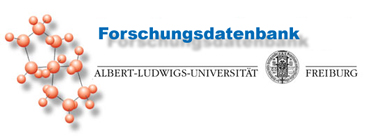| [Zurück zum Forschungsbericht] |
 |

National health care infrastructures, health care utilization and patient movements between hospitals: Networks working to improve surveillance (NeWIS)
Projektbeschreibung:There is a worldwide concern about the emergence, and widespread dissemination, of AMR “high-risk” clones that carry the genomic determinants for enhanced virulence and resistance. Regional, national and international surveillance is considered an important component in a strategy to control these strains. However, current surveillance systems are not fit for this purpose and there is still no good evidence base for deciding which and how many sentinel hospitals should be included in surveillance programs. Previous work coordinated by the lead applicant has shown that AMR “high-risk” clones spread between health care institutions as a result of patient movements. Hospitals thus become connected by patients. Taken together, all connections create a nexus of institutions that can be described as national health care referral networks. Despite their apparent complexity, these networks reveal a simple scaffolding and remarkably consistent properties that lie at the core of national health care infrastructures. These show many of the typical hallmarks of hierarchically distributed networks, with regionality, centrality, scale-freeness and small world properties. Hence a quantitative understanding of the network dynamics offers the means for purpose-designed surveillance and better targeted interventions. The current proposal will bring together a critical mass of public health microbiologists, health systems researchers, and social network analysts from Europe and beyond. These experts shall define the data needs, data sources, algorithms and analysis tools with the aim to identify a heuristic optimization approach to sentinel site selection. In this way the suggested project will provide recommendations for the development of surveillance structures that are more parsimonious, cost- and time effective and provide—through the selection of sampling sites for genomic surveillance by whole genome sequencing (WGS)—the genetic signatures for early, next generation diagnostics of recently emerging clones. The focus on site selection means that WGS will not be part of this initiative.Projektlaufzeit:
Ansprechpartner: Grundmann H
Projektbeginn: 01.04.2019Projektleitung:
Projektende: 01.03.2020
Grundmann H
Stellvertretung: Mutters NT
Albert-Ludwigs-Universität Freiburg
Institut für Infektionsprävention und Krankenhaushygiene
Breisacher Str. 115 B
79106 Freiburg
Telefon: 0761-270-82060
Fax: 0761-270-82030
http://www.uniklinik-freiburg.de/iuk/live/index.html
Mitarbeiter:
- Mutters NT
- Donker T
- Deutsches Zentrum für Luft- und Raumfahrt, BMBF
Aktueller Forschungsbericht